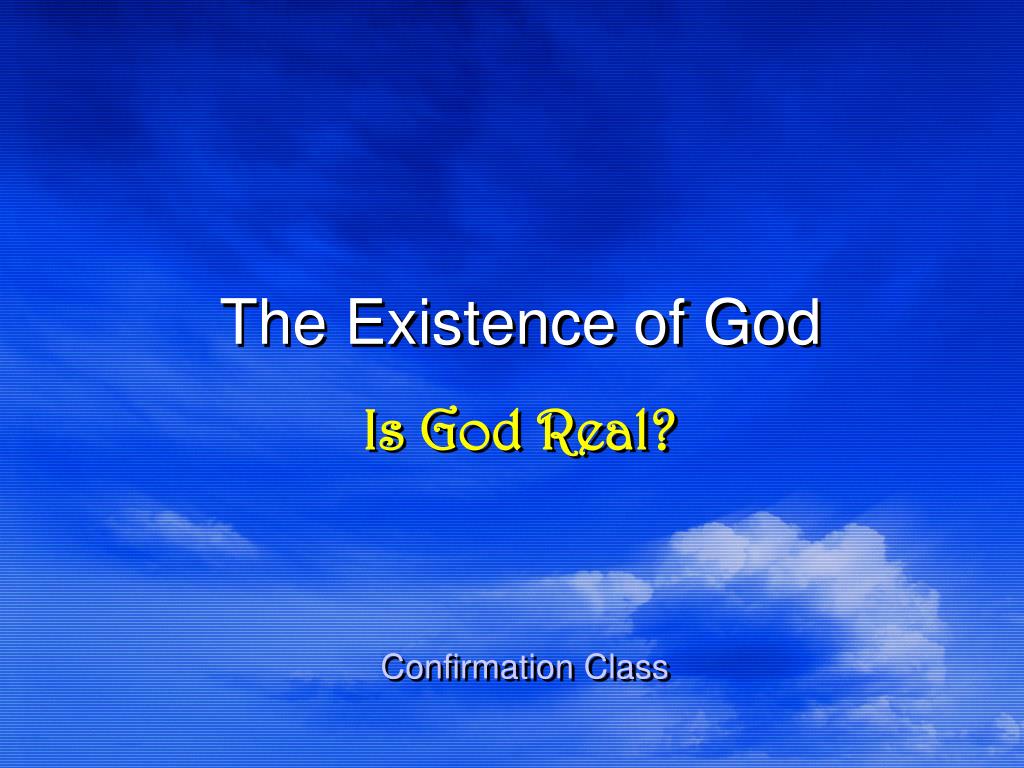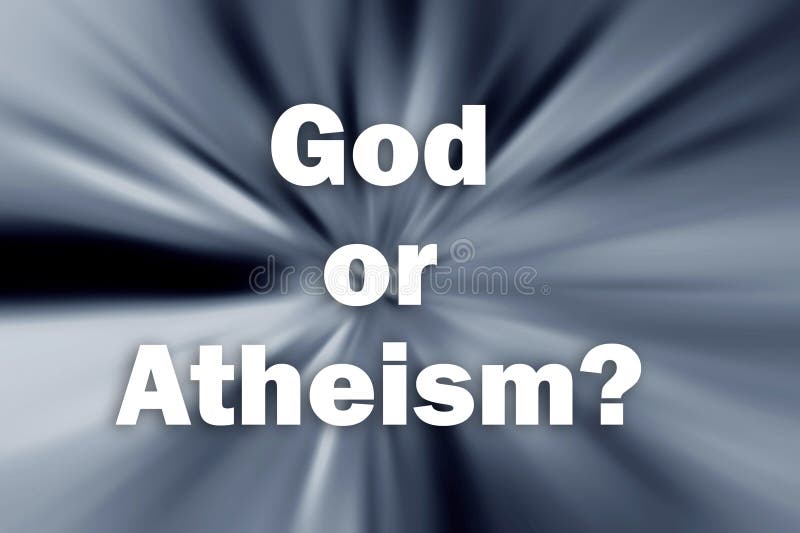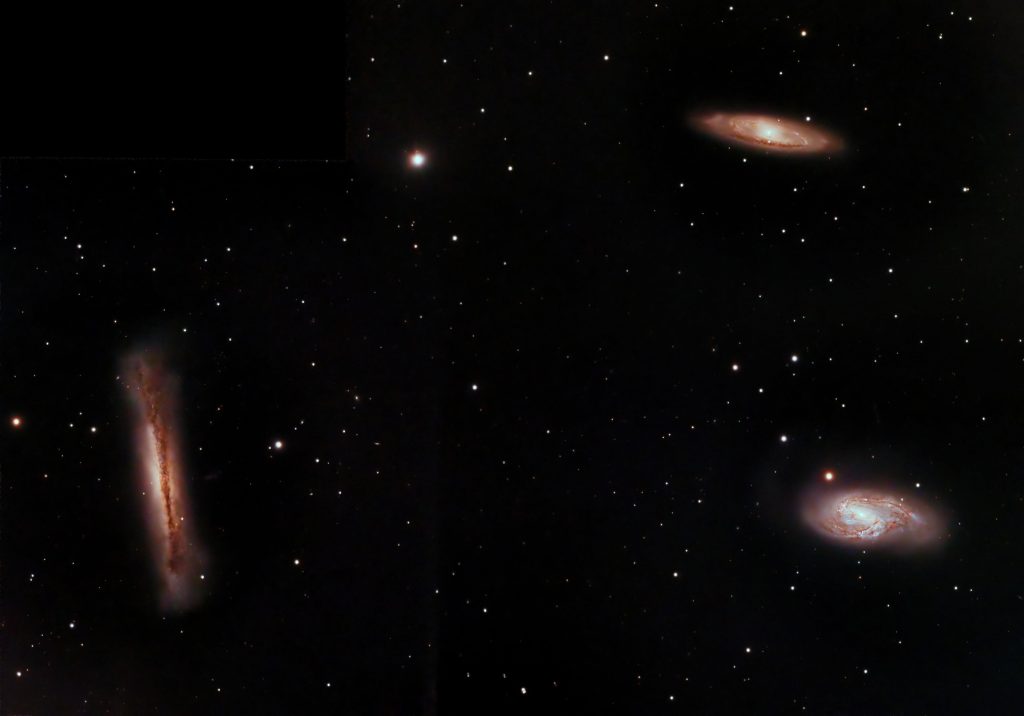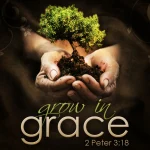Making a Persuasive Case for the Existence of God: The Transformative Role of Education in Shaping a Better World
Throughout the annals of history, various arguments have been advanced to substantiate the existence of God, with perhaps the most compelling among them being the cosmological and teleological arguments.
As we delve into these philosophical frameworks.
It becomes evident that a nuanced understanding of the divine not only stimulates intellectual inquiry but also plays a pivotal role in shaping a more compassionate and harmonious world.
This discourse posits that education, as a transformative force, holds the key to fostering a deeper appreciation for the existence of God.
And, consequently, cultivating a more enlightened and interconnected global society.
Cosmological Argument:
The cosmological argument, a venerable pillar in the realm of theological philosophy, posits that every entity within the universe must have a cause.
This foundational premise propels us to contemplate the origins of the cosmos itself.
Leading to the inexorable conclusion that the universe, as an intricate and interdependent system, cannot be the cause of its own existence.
In this pursuit of causality, we are compelled to acknowledge the existence of a transcendent, uncaused cause—an entity that is beyond the limitations of temporal constraints.
Education serves as the conduit for individuals to grapple with these profound questions.
Fostering a capacity for critical thinking and contemplation that transcends the boundaries of conventional understanding.

Teleological Argument:
The teleological argument, often referred to as the argument from design, invites us to marvel at the exquisite intricacies and complexities inherent in the universe.
From the awe-inspiring complexity of biological organisms to the finely-tuned constants that govern the cosmos, proponents of this argument assert that such order and precision could only be the product of an intelligent designer—
A divine architect, if you will. Education becomes the catalyst for individuals to explore the intricacies of the natural world, enabling them to decipher the profound design woven into the fabric of existence.
By nurturing an understanding of the teleological argument, education empowers individuals to perceive the divine fingerprints on the canvas of the universe.
The Transformative Role of Education:
Education, far from being a mere academic pursuit, emerges as a transformative force capable of instilling a sense of moral responsibility and interconnectedness.
In the pursuit of knowledge, individuals embark on a journey that transcends the boundaries of empirical understanding, delving into the realms of ethics, empathy, and existential contemplation.
By integrating the cosmological and teleological arguments into educational frameworks, we equip individuals with the tools to navigate the complexities of existence.
Fostering a more profound awareness of the divine and a heightened sense of moral purpose.
In making a case for the existence of God, the symbiotic relationship between education and philosophical inquiry becomes apparent.
As individuals engage with the cosmological and teleological arguments, education emerges as the linchpin that not only facilitates a deeper understanding of the divine.
But also cultivates a more compassionate and enlightened global society.
By embracing education as a transformative force, we unlock the potential to build a world where the pursuit of knowledge converges with a profound appreciation for the existence of God.
Laying the foundation for a more harmonious and interconnected human experience.
Created in the Image of God
The Bible unequivocally asserts that humanity is created in the image and likeness of God, a profound theological concept that has resonated through the ages.
This divine imprimatur imbues each individual with inherent dignity, underscoring the sacredness of human life.
The scriptural affirmation serves as a cornerstone for moral and ethical considerations, emphasizing the responsibility to reflect the divine attributes of love, compassion, and justice in our interactions with others.

Furthermore, the Bible, in its wisdom, imparts a stark admonition against dismissing the existence of God. In the book of Psalms, it is written, “The fool says in his heart, ‘There is no God'” (Psalm 14:1, NIV).
This biblical declaration is not intended as a mere denunciation but rather as a call to intellectual humility and spiritual discernment.
It prompts us to recognize the limitations of our human understanding and acknowledge the transcendent reality of a Creator who orchestrates the cosmos.
Expanding on this biblical wisdom, it becomes evident that the acknowledgment of God’s existence is not merely a matter of faith but also a recognition of the intricate design and purpose infused into the fabric of creation.
Delving into the wonders of the natural world, the complexity of life, and the intricacies of the human mind, one discerns a tapestry of evidence pointing to an intelligent and purposeful Creator.
Moreover, the admonition against dismissing God’s existence extends beyond intellectual considerations; it invites individuals to embrace a posture of openness to the transcendent.
This openness fosters a profound spiritual journey, encouraging seekers to explore the depths of their own souls and the mysteries of existence.
The rejection of atheism is not a denial of intellectual inquiry but an invitation to engage in a thoughtful exploration of the divine.
Recognizing that the human intellect is limited in comprehending the vastness of God’s wisdom and purpose.
In essence, the biblical proclamation that we are created in God’s image and that it is foolish to deny His existence provides a foundation for a holistic understanding of human identity and purpose.
It beckons individuals to a life of moral responsibility, compassion, and spiritual exploration.
Embracing this biblical wisdom enriches the human experience, fostering a profound connection with the divine and a deeper understanding of the sacred tapestry of creation.
Expressing the conviction that a denial of God’s existence is not only a moral lapse but also indicative of intellectual deficiency.
I am inclined to underscore the profound implications of the biblical declaration that humanity is created in God’s image and likeness. The sacred scriptural assertion posits a fundamental connection between the divine and the human, underscoring the inherent dignity and purpose that each individual carries.

It is particularly intriguing to consider the paradox inherent in rejecting the existence of God while simultaneously engaging in acts of creation and recreation.
The biblical narrative intimates that the very capacity for creativity and innovation bestowed upon humans is a reflection of the divine nature.
Thus, when individuals presume to play the role of creator, crafting and reshaping the world around them, it appears to be a manifestation of the divine spark inherent in their nature—
A paradox that underscores the deep-seated connection between human ingenuity and the Creator.
In light of this, labeling those who deny God’s existence as morally corrupt and unintelligent is not merely a matter of condemnation but an assertion that challenges individuals to recognize the contradiction within their own actions.
The dichotomy between acknowledging a divine origin and simultaneously asserting autonomy to the extent of denying God’s existence raises questions about the coherence of such a worldview.
It prompts introspection regarding the moral and intellectual coherence of a stance that divorces itself from the acknowledgment of a higher purpose and source of ethical guidance.
Moreover, the condemnation of atheism as morally corrupt and unintelligent extends beyond a mere critique of beliefs; it invites individuals to reevaluate their ethical foundations and intellectual frameworks.
The biblical affirmation of being created in God’s image carries with it an implicit call to align one’s values and intellect with the transcendent moral order that emanates from the divine source.
The assertion that denying God’s existence is both morally corrupt and unintelligent invites a reflective exploration into the paradoxical nature of human creativity and the foundational tenets of one’s ethical and intellectual worldview.
It serves as a call to reconcile the divine imprint on human nature with the convictions one holds, challenging individuals to engage in a more profound introspection that transcends the boundaries of belief and unbelief.
Respecting the diversity of beliefs, it is undeniable that the world around us, with its intricate complexities and compelling phenomena,
Offers a tapestry of truth, facts, and evidences that point toward the existence God or transcendent deity.
Consider the vast expanse of the ever-expanding galaxies and the intricate beauty of the Milky Way. These celestial marvels.
Observable through the lens of advanced telescopes and scientific inquiry, stand as cosmic testaments to a grand design that transcends human comprehension.
The intricacies of the cosmos, with its precision and order, beckon the curious mind to contemplate a purposeful creation rather than a result of mere chance.

Similarly, the daily celestial ballet of the sun, rising and setting with unerring consistency, paints a vivid portrait of cosmic order.
The precision with which this celestial body orchestrates its routine, providing light and warmth to sustain life on Earth, is a compelling indication of a meticulous design that extends beyond the boundaries of random occurrence.
While the tangible evidence is abundant and persuasive, it is crucial to recognize the inherent duality of human existence—physical and spiritual. Beyond the tangible and observable, there exists a realm that transcends the limits of the material world.
The acknowledgement of a spiritual dimension adds depth to our understanding of existence, reminding us that our capacity to comprehend reality extends beyond the confines of the visible.
Indeed, the call to acknowledge the existence of the divine is not solely rooted in the observable and empirical.
The spiritual aspect of human nature invites contemplation of a reality that transcends the physical, prompting a holistic understanding that embraces both the seen and the unseen.
This acknowledgment aligns with the profound insight that humanity is not merely a product of the material world but is also intricately connected to a spiritual dimension.
In essence, while beliefs may vary, the convergence of truth, facts, and evidences found in the intricacies of the cosmos.
And the celestial dance of the sun invites a thoughtful consideration of a higher intelligence, a force that orchestrates the grandeur of existence.
Embracing the awareness of both the physical and spiritual dimensions of our being enriches our understanding of the profound mystery that is life.
Encouraging an exploration that transcends the boundaries of the tangible world.
The profound wisdom encapsulated in the words of Apostle Paul resonates powerfully in the acknowledgment that the presence of God is omnipresent, entwined in every breath we take and every move we make.
In declaring that “in Him we live and move and have our being” (Acts 17:28), Paul emphasizes a profound truth that transcends the temporal and the tangible.

This realization becomes a source of unwavering strength and courage, fostering a perspective that liberates from the fear of human authority or undue reliance on created entities.
By recognizing the constant presence of the Creator, an enduring trust in the divine is cultivated, elevating one’s consciousness above the transient uncertainties of life.
In this unwavering trust, mountains cease to be insurmountable obstacles but rather become conquerable peaks.
Sickness, once deemed formidable, is confronted with the belief that there is no ailment too formidable for the healing touch of the Divine Physician.
Challenges, no matter how daunting, are met with a steadfast resolve grounded in the understanding that, with God, nothing is impossible.
This profound faith not only provides solace in times of adversity but also serves as a guiding light in navigating the complexities of life.
The recognition of God’s omnipresence becomes a constant reminder that, in every circumstance, one is enveloped by a divine presence that surpasses understanding and provides an anchor for the soul.
By internalizing the essence of living and moving in God, a transformative paradigm emerges—one that instills courage, resilience, and an unwavering trust in the Creator.
It invites individuals to transcend the limitations of their own strength and wisdom, tapping into a wellspring of divine grace that empowers them to face life’s challenges with faith and fortitude.
In conclusion, the declaration of living and moving in God’s presence, as articulated by Apostle Paul, becomes a profound source of inspiration and strength.
It reshapes perceptions, fostering a fearless attitude toward life’s uncertainties and imbuing individuals with the confidence that, with the Creator by their side.
No obstacle is insurmountable, no ailment unbeatable, and no challenge unconquerable.
Surviving in a Country Like Nigeria: A Case Study
Navigating the landscape of contemporary Nigeria presents an intricate tapestry of challenges, yet each day, I find the strength within to not only endure but to overcome.
From the arduous battle against drug addiction to the emotional strains of barrenness and the relentless grasp of debilitating poverty.
My journey has been marked by resilience, triumph, and a profound understanding that I am not alone in this struggle.
In the crucible of these challenges, a revelation has unfolded—the realization that the Most High God dwells within me, akin to an indomitable flame.
This awareness has led me to a profound truth: I am, in a sense, a god, an embodiment of divine potential and resilience.
In recognizing this inherent divinity, I’ve come to understand that I possess the capacity, capability, and ability to shape and reshape my world.
This revelation echoes the teachings of Jesus, who affirmed the divine essence within each of us by declaring, “Ye are gods.” This divine spark is not an exclusive privilege but a universal truth accessible to all who choose to embrace it.
It is a clarion call to transcend the shackles of limiting beliefs and societal expectations, beckoning individuals to tap into their innate creative power.
The implications of this realization extend beyond personal triumphs; it is a call to collective empowerment. In a nation grappling with multifaceted challenges.
Understanding our shared divinity becomes a beacon of hope.
It inspires a vision where individuals, recognizing their divine potential, actively contribute to reshaping the narrative of their lives and the destiny of their nation.
To heed these assertions, one must tread a path of moral integrity, intelligence, and wisdom.
It is an invitation for those who aspire to rise above the pitfalls of moral corruption, unintelligence, and foolishness.
Embracing this truth requires a commitment to self-discovery, moral uprightness, and an openness to the transformative power that resides within.
In conclusion, the journey through the complexities of contemporary Nigeria has not only shaped my character but also revealed a profound truth—that the divine resides within each of us.
Embracing this truth is an invitation to a life of purpose, resilience, and creativity.
Extending beyond personal triumphs to contribute to the collective flourishing of a nation in need of hope and transformation.
The Need for Education, Education and More Education
Embarking on a journey of self-discovery and cultivating self-awareness is akin to unlocking the door to personal courage, instilling within an individual the capacity and readiness to fulfill their life’s purpose.
This profound realization serves as a catalyst for transformative change.
Shaping not only personal trajectories but also influencing the broader political landscape.
In the realm of self-discovery, individuals become empowered with a deep understanding of their strengths, values, and aspirations.
This newfound awareness breeds courage, allowing them to navigate life’s challenges with resilience and purpose.
A person armed with self-awareness is not only capable but becomes a force for positive change, poised to contribute meaningfully to the world around them.
This heightened self-awareness holds immense potential to reshape the political terrain.
It addresses the interconnected nature of bad leadership and bad followership, recognizing that the quality of governance is intricately tied to the level of awareness and engagement within the citizenry.
In this context, the axiom that “bad followership is as bad as bad leadership” underscores the critical role of an informed and discerning populace.
The root cause of bad leadership often lies in the passive acceptance and lack of scrutiny exhibited by citizens. An unaware citizenry may succumb to timidity, making it challenging to question authority and hold leaders accountable.
This, in turn, fosters an environment where intelligent choices and decisions are undermined, perpetuating a cycle of suboptimal governance.
Education emerges as a powerful antidote to these challenges. A society that prioritizes education lays the groundwork for informed citizens capable of critical thinking and discernment.
Through education, individuals develop the skills to question, analyze, and make intelligent choices.
They become active participants in the democratic process, fostering a culture of accountability and transparency.
A comprehensive discussion, such as the one you’ve initiated, plays a pivotal role in this transformative process.
By highlighting the connection between self-awareness, courageous leadership, and a vibrant political landscape, it becomes a clarion call for educational reforms.
The emphasis on “education, education, and more education” serves as a rallying cry to invest in the intellectual empowerment of individuals.
Cultivating a citizenry that is not only aware of its potential but is also actively engaged in shaping a better future.
The journey of self-discovery and heightened self-awareness is a catalyst for personal courage and purposeful living.
This awareness, when extended to the political arena, becomes a powerful force for positive change.
By recognizing the symbiotic relationship between informed citizens and effective governance, and advocating for education as the cornerstone of societal transformation, we pave the way for a brighter and more accountable future.
When I advocate for education, it is imperative to underscore that I refer specifically to a particular kind—
An education that transcends mere academic pursuits and delves into the realms of intellectual, ethical, and spiritual development.
Unfortunately, what is often labeled as education in contemporary society tends to fall short of this holistic ideal.
A truly authentic education, in my view, should be a comprehensive journey that nurtures not only the mind but also the heart and spirit.
The prevailing educational landscape often emphasizes intellectual growth at the expense of ethical and spiritual dimensions.
Authentic education, however, is characterized by a well-rounded and balanced approach.
It entails not only the acquisition of knowledge but also the cultivation of virtues, moral principles, and a deep understanding of one’s spiritual nature.
This approach acknowledges that an enlightened individual is one who harmonizes intellectual pursuits with ethical considerations and spiritual insights.
The urgent need to transform education into a well-rounded and balanced adventure is underscored by the belief that this is the key to making the world a better place.
Genuine education has the transformative power to address some of the most pressing global challenges, including poverty, climate change, and conflicts.
Poverty, often perpetuated by systemic issues, finds its roots in ignorance. By fostering an educational system that empowers individuals with knowledge and critical thinking skills, we can dismantle the barriers that sustain poverty.
A well-rounded education not only equips individuals with the tools to uplift themselves but also nurtures a sense of empathy and responsibility toward others, mitigating the greed that exacerbates economic disparities.

Climate change and conflicts, likewise, are intricately linked to a lack of understanding and empathy. An authentic education emphasizes ecological awareness, teaching individuals about the interconnectedness of the global ecosystem.
Furthermore, it instills values of empathy, fostering a sense of responsibility toward the environment and fellow human beings.
In doing so, education becomes a potent instrument for addressing the root causes of conflicts arising from resource scarcity and competing interests.
In conclusion, the call for a well-rounded and balanced adventure in education is a plea for a transformative paradigm that extends beyond academic knowledge.
By nurturing intellectual, ethical, and spiritual dimensions, authentic education becomes a catalyst for positive change.
Offering a pathway to eradicate poverty, mitigate climate change, and promote global harmony.
It is an investment in creating a world where individuals are not only knowledgeable but also compassionate, ethical, and spiritually awakened.
CONCLUSION
In the pursuit of making a persuasive case for the existence of God and understanding the transformative role of education in shaping a better world.
We embark on a profound journey that transcends the boundaries of theological discourse and educational philosophy.
This exploration converges on a vision where the recognition of the divine and the pursuit of knowledge converge harmoniously.
Creating a tapestry of enlightenment that has the potential to redefine the very fabric of our existence.
The cosmological and teleological arguments, venerable pillars in the realm of theological philosophy, beckon us to contemplate the mysteries of creation and the intricate design of the universe.
These intellectual pursuits, when woven into the fabric of education, become threads that connect individuals to a deeper understanding of the divine.
Education, in its truest form, serves not merely as a repository of facts but as a transformative force that cultivates intellectual curiosity, ethical discernment, and spiritual contemplation.
As we navigate the complexities of existence, education emerges as the linchpin that empowers individuals to grapple with profound questions about the nature of God, the purpose of life, and the interconnectedness of all things.
The cosmological argument, with its assertion that every effect must have a cause, invites us to contemplate the ultimate cause—
The uncaused cause, the very essence of God. In this pursuit, education becomes the vessel through which individuals embark on a journey of intellectual exploration, questioning, and discovery.
The teleological argument, drawing our attention to the intricacies of the universe’s design, affirms the presence of an intelligent creator.
Education, when infused with the principles of the teleological argument, becomes a catalyst for awe and wonder.
It enables individuals to discern the divine fingerprints in the complexities of the natural world, fostering a sense of reverence for the creative intelligence that governs the cosmos.
Beyond intellectual inquiry, education emerges as a transformative force capable of shaping moral character and fostering a sense of interconnectedness.
The awareness of being created in God’s image, as the scriptures declare, imbues each individual with inherent dignity and purpose.
Education, in recognizing and nurturing this sacred truth, becomes a conduit for the development of ethical values, compassion, and a commitment to the common good.
In the realm of education, the transformative potential extends to the societal level.
A world where the pursuit of knowledge converges with a profound appreciation for the existence of God is a world where individuals are not only informed but also morally and spiritually enlightened.
This holistic education becomes a cornerstone for building societies that prioritize justice, empathy, and a shared responsibility for the well-being of all.

In conclusion, the case for the existence of God, intricately intertwined with the transformative role of education, paints a vision of a better world—
One where intellectual inquiry, moral integrity, and spiritual awareness converge to shape the destiny of humanity.
It is a call to embrace education not merely as a means of acquiring information but as a sacred journey that leads us to the transcendent truths that define our existence.
As we stand at the crossroads of faith and knowledge, let education be the beacon that guides us toward a future where the divine and the intellectual coalesce.
Ushering in an era of profound enlightenment and collective flourishing.















More Stories
Refined with Afflictions in God’s Refinery
When God’s Mercy Speaks: A Boundless and Transformative Grace
Breaking the Gates of Brass: Embracing God’s Unfailing Goodness